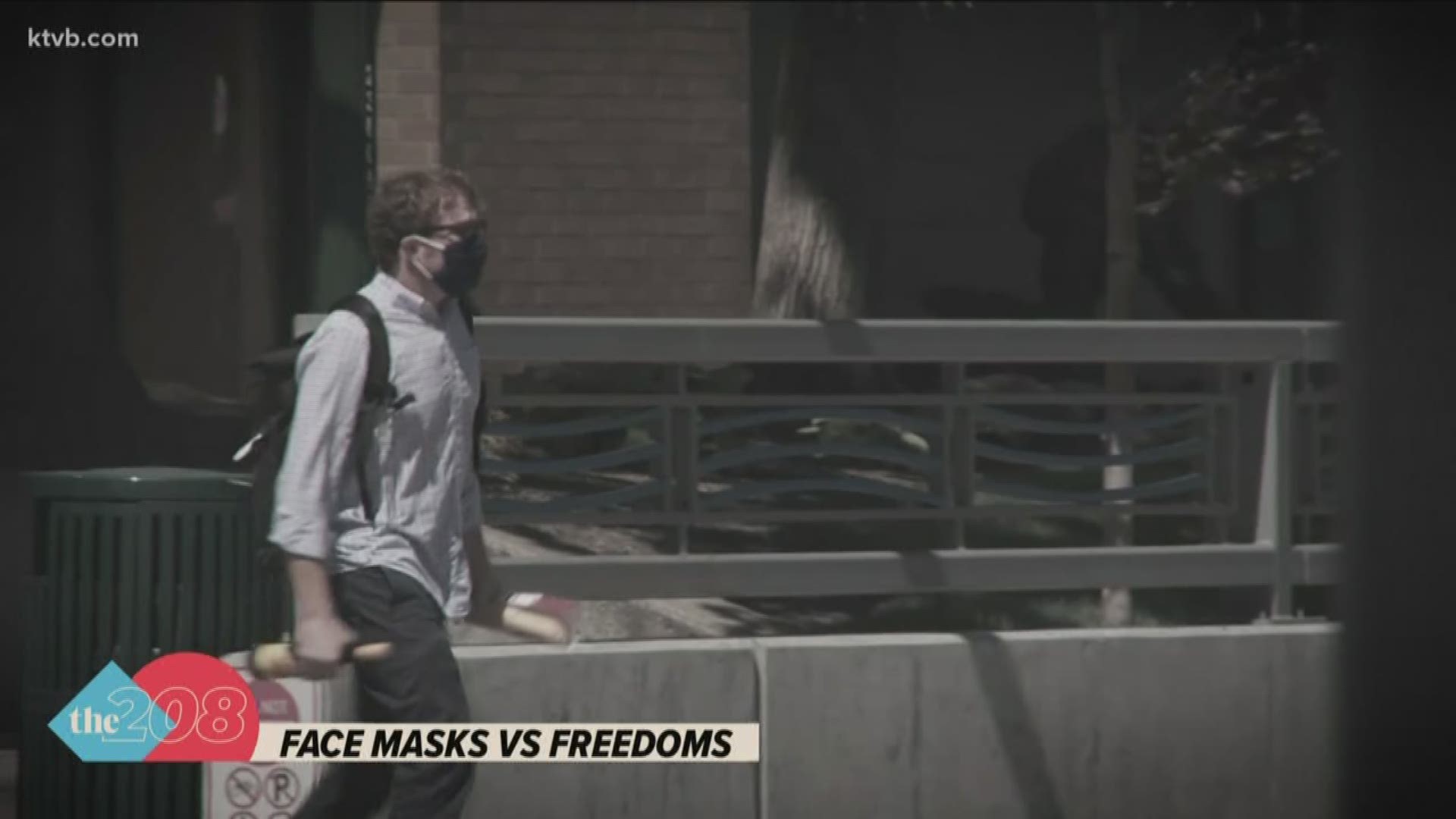BOISE, Idaho — The city of Boise is now in its third day of mandating face masks in all public places.
There are some exemptions.
Kelli G. sent us an email over the weekend asking, "since I dropped the ball as Gen X parent, could you please explain the Social Contract to the next generation? An implicit agreement among the members of a society to cooperate for social benefits by sacrificing some individual freedom for state protection," which of course means putting aside your own selfish desires for the greater good.
From Socrates to Thomas Hobbes to John Locke to Jean-Jacques Rousseau -- this social contract idea has been around a long time.
This time it applies to the mask question.
So we thought we'd address the whole face masks versus freedoms debate.
We love our freedoms here in Idaho, which is why so many of you have been texting us, wondering -- can they really make me wear a face mask?
Isn't that an infringement on my personal freedoms?
Kim Fields talked with a constitutional law professor at University of Idaho for some answers.
"People are saying whoa, wait, that's an infringement on my personal freedoms. Do they have a leg to stand on?" asked Kim Fields.
"It's not just a question of whether it's an infringement on personal freedoms, it's a question of whether it's a justified infringement on personal freedoms," said Shaakirrah Sanders, professor of Law, University of Idaho.
“There is an element of this that we have seen throughout history that governments have declared emergencies powers in times of emergencies," Sanders said.
Sanders says it's similar to when Gov. Brad Little ordered non-essential businesses to close. Several statutes in the Idaho Constitution granted Little the authority to do so, for the greater good of society's health and public safety.
Sanders says face mask mandates would likely be considered justified too, if it were to be challenged in court.
"Forcing an individual to wear face masks arguably does implicate your fundamental right to free expression," Sanders said. "But like I said, the question is whether there's a justified infringement. And I would think the authority given to states and cities under the Idaho, under the federal and state constitutions, in addition to the fact that we have a pretty deadly pandemic going on, would tend to show there's a compelling government interest here. And medical research has shown us that wearing a face mask is effective against the spread of COVID-19. So that would essentially be the argument in court."
Sanders stresses that does not mean the government can tell you to wear a face mask in your home or car or private business.
"But out in public, on streets in public places, then yes because of the link between the face mask and combating the disease," Sanders said. "If a court agrees with that, then the court would say, 'hey for purposes of COVID-19 it may be OK for the government to force us to wear a face mask in public.'"
Of course, it would ultimately be up to a court of law to decide. Again, if someone were to file a lawsuit challenging the order.
Sanders was merely giving her opinion based on her interpretations of the U.S. and state constitutions.
Facts not fear: More on coronavirus
See our latest updates in our YouTube playlist:

